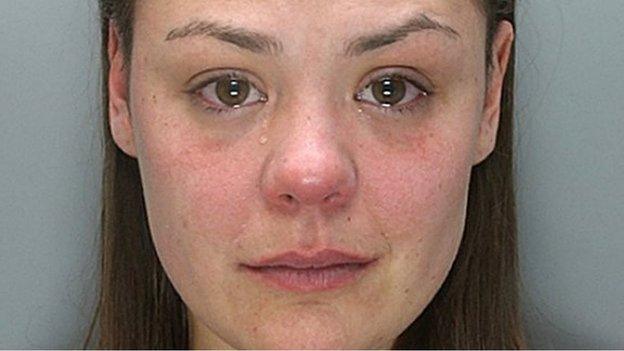PC Paul Briggs: No appeal against ending life support
- Published
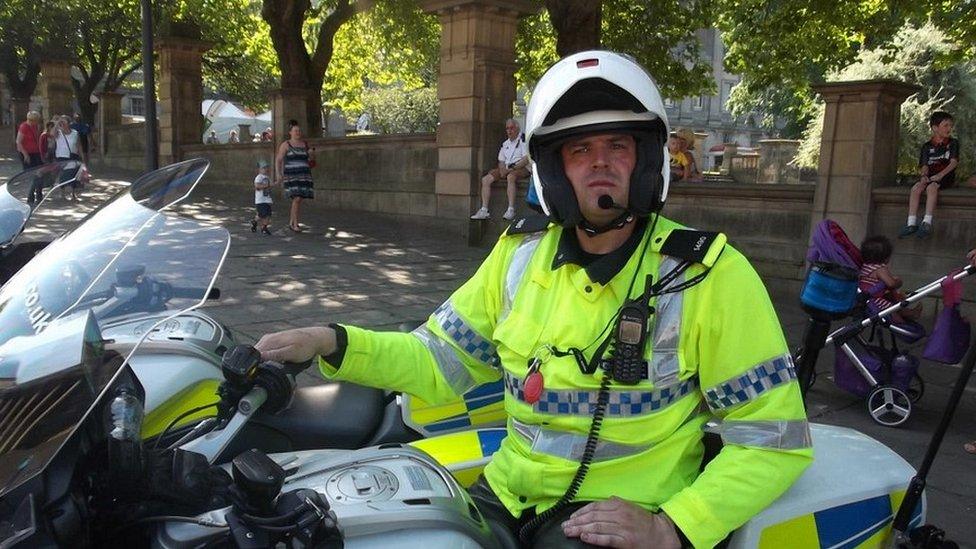
PC Paul Briggs was injured in a crash on his way to work for Merseyside Police
A decision to allow doctors to stop providing life support treatment to policeman who has been in a minimally conscious state for 18 months will not be challenged, lawyers have said.
Paul Briggs, 43, suffered a brain injury in a crash on his way to work for Merseyside Police.
A judge ruled on Tuesday that Gulf War veteran Mr Briggs should go on to a palliative care regime at a hospice.
His wife Lindsey said she was "happy and relieved" there would be no appeal.
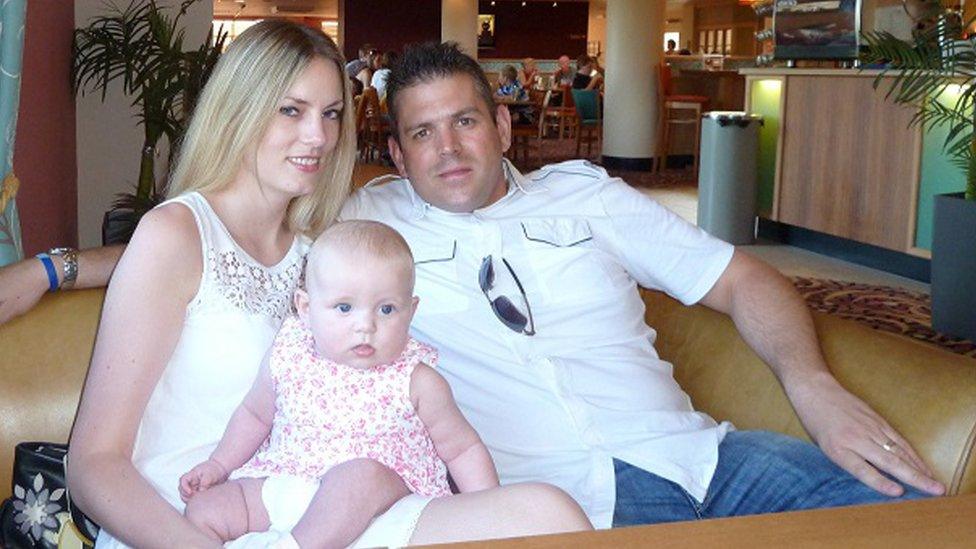
Paul Briggs with his wife Lindsey and their daughter Ella, who is now five
Mrs Briggs had told the Court of Protection treatment should be stopped "given his previously expressed wishes" and he should be allowed to die.
But doctors treating Mr Briggs had opposed the withdrawal of treatment.
Mr Justice Charles ruled in her favour after a hearing in the Court of Protection, where judges consider issues relating to people who lack the mental capacity to take decisions.
Lawyers had suggested the Official Solicitor, which acts for people who are vulnerable because of their lack of mental capacity, may seek leave to appeal against the decision.
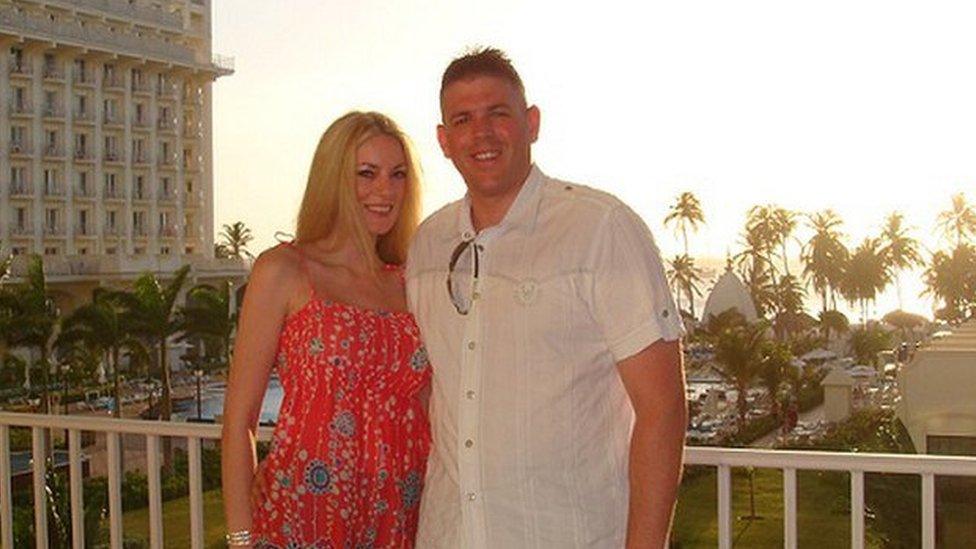
Lindsey and Paul Briggs have been married since 2000
But a spokeswoman for Irwin Mitchell, the law firm which represented Mrs Briggs, said on Friday the Official Solicitor's office had decided not to appeal.
Driver Chelsea Rowe was jailed for a year for crashing into PC Briggs in Birkenhead as he was riding his motorcycle on the way to work a nightshift in July 2015.
He suffered a bleed on the brain and five spinal fractures. He has been kept alive through medical intervention.

Disorders of consciousness

Consciousness requires both wakefulness and awareness - and damage to the brain can cause disorders of consciousness
A coma is when a person shows no signs of being awake and no signs of being aware; they lie with their eyes closed and do not respond to their environment, voices or pain
A vegetative state is when a person is awake but shows no signs of awareness; they may wake up and fall asleep at regular intervals, have basic reflexes and regulate their breathing without assistance
A minimally conscious state is when a person shows clear but minimal or inconsistent awareness; they may have periods where they can communicate or respond to commands
Source: NHS Choices

- Published20 December 2016
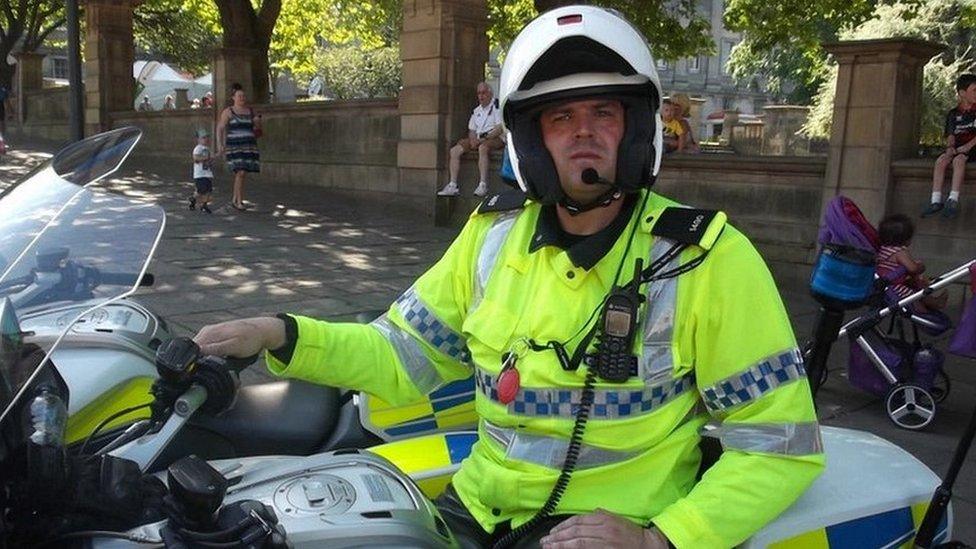
- Published1 December 2016

- Published30 November 2016

- Published28 November 2016
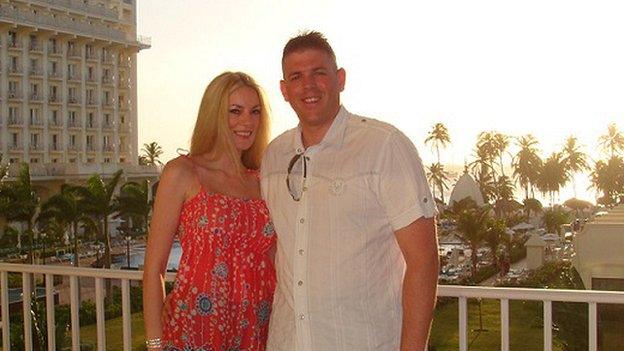
- Published1 November 2016

- Published8 July 2016
